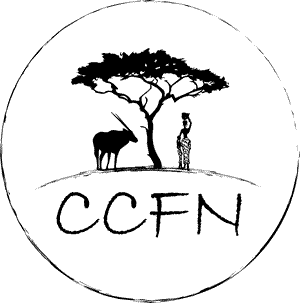The organisation's first phase of operations (2017-2021) was considered foundational, a stage during which the institution set out to establish its role within CBNRM and build the requisite reputation, name and support structures able to attract and manage the targeted endowment resources going forward. 2022 - 2027 sees the institution in its second phase of growth with an emphasis on upscaling operations, wider donor and stakeholder outreach and increased support. In 2022, the organisation managed the following funding pots as aligned to its key business "products" of Critical Support Services (CSS), Payments for Eco-system services (PES) and Human Wildlife Conflict (HWC):
- CCFN CBNRM CSS Endowment Fund
- CCFN Legal Assistance Fund
- CCFN COVID Emergency Crisis Fund
- CBNRM National Wildlife Credits Scheme
- Poverty Oriented Support to Community Conservation in Namibia (POSCCIN) Project
- CCFN Operations Fund
Previous - January 2020
The major foundations of the CCFN have been set and the organisation’s operations have started in earnest.
In addition to governance documents such as ByLaws, a detailed Strategic Plan for the CCFN’s first years of operation was drafted. Following this, detailed internal documents including but not limited to HR and Financial Manuals, Investment Strategy, Resource Mobilisation, Communications Strategies were drafted and approved by the Board. A core team comprising the CEO, Project Manager and the Finance and Procurement Officer have been hired. After two years from its incorporation, the Fund is expected to officially launch on the 13th February 2020 with its first major project targeting Human Wildlife Conflict in Namibia’s Communal Conservancies. In addition to this the following strides have been achieved from inception to date.
- Commencement of Resource mobilisation efforts as per the Resource Mobilisation Strategy.
- Finalisation of Agreements for financing of a HWC Conflict Management Project entitled “Poverty Oriented Support to Community Conservation in Namibia” finalised with KfW and MET – Total Estimated Project value N$ 94 000 000 – Project start date is January 2020.
- CCFN Endowment Fund capitalised – February 2019.
- Establishment of an autonomous CCFN office.
- CCFN elected to serve on the Excecutive Committee of the Consortium of African Funds for the Environment (CAFÉ).
- Take-over of support Legal Costs Support (a component of MSP) to Conservancies from WWF Namibia.
During the forthcoming calendar year CCFN shall endavour to continue growing from strength to strength in pursuance of its objectives and vision. It is expected that the first grants to conservancies will be issued mid 2020. The public will be kept informed of all major events through our “News” section of the website accordingly.
January 2019
Extensive background work has been undertaken to initiate the CCFN. The detailed gap analysis of the anticipated CBNRM funding needs has been finalised, while the provisional scopeof activities eligible for conservancy support has been developed. The Fund’s Articles of Association have been drafted and refined through two legal reviews, while the name of the CCFN has been reserved with the Ministry of Trade and Industry Registrar of Companies. A draft organisational and staffing structure for the CCFN has been developed, and a first draft of the Fund’s Operational Manual has been prepared. The Founding Members have been identified, and include very high profile and respected Namibians, including the Deputy Prime Minister/Minister of Foreign Affairs. A powerful and influential Board of Directors, encompassing a diverse set of knowledge and skills (i.e., conservation, law, finance, investments, etc.) has been identified and agreed to their roles.
The above process has been driven by the CBNRM Sustainability Task Force, with the support of WWF which has raised funds to facilitate creation and operationalisation of the Fund and to leverage support from potential funding partners.
The above steps are largely foundational, with many additional steps and requirements to be met before the CCFN can be fully realised. Some of these steps include:
- Legal and technical review of the CCFN Articles of Association to ensure their responsiveness to donor requirements and needs;
- Approval of the Articles of Association by the Founding Members, and registration of the CCFN with the Registrar of Companies;
- Orientation of Founding Members and the CCFN Board to ensure understanding of roles and responsibilities;
- Development and approval of Board By-Laws;
- Securement of tax exempt status for CCFN and assurance of CCFN compliance to Namibia foreign exchange controls;
- Securement of offshore tax exemption to allow investments without the incurrence of taxes related to capital gains, dividends and interest, as well as charitable donations with tax benefits to contributors;
- Start-up of the CCFN through the selection of a qualified CEO and hiring of a skeleton staff for commencing initial CCFN operations;
- Development of investment policies and guidelines and selection of a professional fund manager;
- Development of an Operations Manual / Guidelines and training of CCFN staff in its use;
- Development of a CCFN Strategic and Financial Plan;
- Creation of a Communications Strategy; and
- Commencement of fund-raising activities to capitalise the CCFN.
It is anticipated the above activities will be undertaken over the next 18-24 months, allowing the CCFN to become fully operational in approximately three years.
